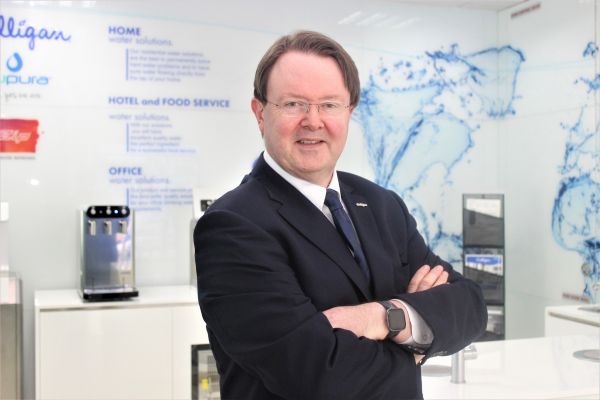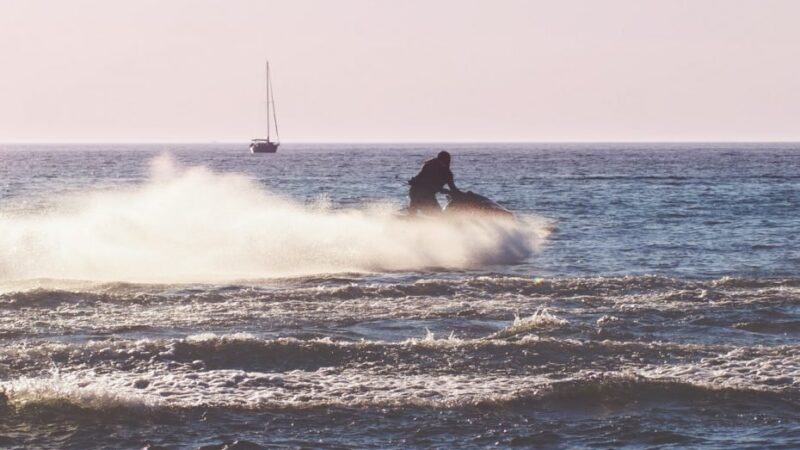What made the news – good and bad – in Wilsonville last year and what’s happened since we reported it
The year 2019 was a full one for Wilsonville and surrounding areas, with new city councilors, state legislators and school board directors leading a community balancing growth, transportation issues and economic development. Some of our news topics overlapped in this areas and many are stories in progress. Here are some of the more important stories we reported on, and an update about where it is now:
Frog Pond

JANUARY: Metro added Frog Pond West, which is 181 acres, into the urban growth boundary in 2002. Wilsonville’s former catalyst for residential growth, Villebois, made adding housing in Frog Pond less urgent — which is why 16 years elapsed before the first development application came to the fore. But with Villebois near completion, the City shifted its focus to Frog Pond.
Due to an imbalance of jobs and housing, for many years, residential growth has been a priority in Wilsonville.
According to an Economic Opportunity Analysis produced by the City and consultants in 2008, Wilsonville had a jobs-to-population ratio of 1.03 compared to a ratio of 0.49 in Washington and Clackamas County at large. By 2017, Wilsonville’s jobs-to-housing ratio decreased to 0.84 — due in large part to growth in Villebois.
DECEMBER: By fall, roughly 200 permits have been issued for homes in Frog Pond West. To meet concerns about traffic impacts caused by the growth of housing on the west side of town, the City plans to convert Boeckman Road to three lanes and add sidewalks and bike lanes and is in the process of planning a project to add a bridge over the “dip” in Boeckman Road to improve accessibility and safety. The City also plans to add similar improvements to Stafford Road once development on that street accelerates.
The bridge project is funded through urban renewal, which uses the taxes associated with increases in property values to fund public infrastructure improvements.
Boone Bridge

APRIL: The Spokesman reported that Sen. Alan Olsen, R-Canby, proposed Senate Bill 1021, which asks for the state government to fund the approximately $134 million Boone Bridge expansion project outright, while Wilsonville representatives were attempting to get a $3.5 million engineering analysis for the project funded in the next biennium. The I-5 Wilsonville Facility Plan, which materialized after the Oregon Department of Transportation studied the I-5 traffic bottleneck and determined that a southbound auxiliary lane between the Wilsonville Road exit and the Canby-Hubbard exit would significantly reduce congestion, was placed into the Oregon Transportation Plan in 2018 with a projected completion date between 2028 and 2040.
The state considers retrofitting the Boone Bridge to be a lower priority than retrofitting some other bridges in Oregon, and ODOT merged the seismic retrofitting and lane addition with the belief that they might become a higher legislative priority together than apart.
Moving up the project’s timeline is one of the City of Wilsonville’s highest legislative priorities.
The goal of retrofitting the bridge is to prepare it to withstand an earthquake, while adding an auxiliary lane from the Wilsonville Road exit to the Canby/Hubbard exit would ease traffic congestion on a section of I-5 that is considered a bottleneck.
The Oregon State Legislature already had passed a budget note in House Bill 5050 mandating that ODOT present a report on the study’s findings to the Legislature by Feb. 1, 2021; that timeline has not changed.
JULY: The Oregon Transportation Commission passed an amendment to add the project to the state’s project queue. The amendment added the project to the Oregon Transportation Plan, which includes a list of projects that have met the necessary requirements, such as public involvement, to be considered for funding. During an Aug. 6 meeting, the Oregon Department of Transportation decided to use $300,000 to fund a study about the Boone Bridge project. The study would determine the scope and cost.
Villebois

MARCH — The Spokesman reported on a catastrophic fire in Villebois that began at a 34-unit, four-story condominium building under construction. The fire damaged or destroyed at least 20 occupied condominiums, displaced about 25 people and destroyed 14 vehicles.The fire was so intense inspectors had to check underground pipes in the area to ensure there was no damage.
MAY: Officials released preliminary results from an investigation, calling the fire “incendiary” but not going as far as calling it arson. Investigators were pulling out all the stops, asking neighbors for security camera footage, interviewing witnesses and using social media to canvass the neighborhood.
Meanwhile, the city of Wilsonville put its plans to jumpstart development in Villebois’ commercial Village Center on hold. The efforts, which would have included an incentive program to encourage retail development by allowing residential dwellings to be combined with commercial buildings, drew opposition from many in Villebois concerned about density in their neighborhood.
Retail development in the Villebois Village Center has largely languished for over a decade and the goal of the tax abatement program was to convince developers that adding retail buildings is financially feasible.
DECEMBER: By the end of 2019, investigators still had not released a report from the fire and its causes. And according to Community Development Director Chris Neamtzu, there has been no activity on the “vertical housing” tax credit to encourage commercial activity in Villebois, although it’s possible talks might start up again in 2020.
City Council

JANUARY: Wilsonville City Council welcomed a new member, Ben West, a change that started amicably enough but became contentious as 2019 progressed. West previously had run against incumbent Mayor Tim Knapp on a write-in ticket and was a vocal opponent of Knapp and longtime incumbent Charlotte Lehan. In June, when Councilor Susie Stevens resigned from the council and Knapp and Council President Kristin Akervall failed to appoint West’s friend John Budiao, who had run for council alongside West and garnered the third-highest number of votes, West castigated the council for being unwilling to listen to the community or opposing voices. In other city council news, a trio of local residents announced plans to circulate a petition to initiate term limits for the council, citing a wish to bring fresh voices to the fore.
SEPTEMBER: In the end the council appointed Charbonneau resident Joann Linville, who supports the City’s opposition to an expansion of the Aurora Airport.
DECEMBER: Term-limit petition organizers submitted what they said was the requisite number of signatures in time for them to be verified, and in time to get more signatures if some are rejected.
Water recreation rules

FEBRUARY: After contentious testimony and the involvement of state legislators in 2018, a list of proposed rule changes applicable on the Willamette River from mile 30 to 50, which is roughly between Newberg and West Linn, were submitted to the Oregon Marine Board and most were adopted into a list of proposed changes.
The proposed changes included nixing the ban on wake enhancement devices entirely and replacing it with added rules for wakesurfing and wakeboarding. The new rules included disallowing operating a motorboat with the purpose of wakeboarding within 200 feet of a dock and disallowing operating a boat with the purpose of wakesurfing within 300 feet of a dock as well as a ban on wakesurfing on certain sections of the river. The Marine Board agreed to revisit the changes in one year, three years and five years and to form a citizen committee that would provide input into how the changes were going.
JUNE: Two bills trying to address riverbank erosion and water sports education were going through the Legislature. One allowed the Marine Board to impose regulations and another required boaters to obtain educational endorsements to participate in water sports such as wakeboarding or wakesurfing. Homeowners on this portion of the river have long claimed wake activities have damaged their docks and eroded shorelines. The bill was a response, in part, to those concerns. Also in June the Marine Board rejected a petition aiming to repeal the rules instituted earlier in the year.
DECEMBER: The Marine Board reopened its rule-making process in October regarding water sports in the Newberg Pool, and the nonprofit environmental group Willamette Riverkeeper filed a petition to outlaw wake sports using large and midsize boats on that stretch of river. In December, a rules subcommittee of stakeholders was split in its decision of what to recommend to the Marine Board regarding a total ban on wake sports.
Go electric

JANUARY: With the advent of 2019 the City of Wilsonville announced a partnership with Portland General Electric to install a five-car charging station at the Wilsonville Public Library, providing a safe charging station close to restaurants, shops, parks and the library. The hub, with one 6.7 kW Level 2 dispenser and four 50 kW DC Fast Charge stations, would be constructed, operated, inspected, repaired and maintained by PGE; the City is responsible for the care and maintenance of the parking area.
JUNE: Wilsonville transit provider, SMART, unveiled two new electric buses for use on one of the city’s busiest routes. Wilsonville students designed the “wrap” graphics displayed on the buses’ exterior.
DECEMBER: Delora Kerber, city engineer, says that all the hardware and landscaping has been installed at the site, with testing of the system to begin in January. A soft opening is expected in spring 2020.
The electric buses, according to SMART’s Director Dwight Brashear, can be seen throughout the city most days and are “quickly becoming an integral part of the community’s vibrant landscape.”
Canby Ferry

JANUARY: The Clackamas County Board of Commissioners decided to shelve the idea of replacing the money-losing ferry with a bridge following strong objection to the idea from attendees of a recent public meeting. With that idea off the table, Project Manager Stephen Williams told the Spokesman that the county will either try to find new revenue streams for the ferry or close operations.
According to a county analysis, the ferry, which crosses the Willamette River and is located next to Sandelie Golf Course and near Wilsonville, has lost $400,000 annually and is projected to cost over $16 million between 2025 and 2049.
Some revenue-generating ideas included raising the ferry’s fare above its current $5 charge for cars and $2 charge for pedestrians, creating a transportation district to raise property taxes for homeowners within the ferry’s vicinity, and collecting money from cities directly.
DECEMBER: According to Clackamas County Transportation Planner Stephen Williams, no more decisions have been made about the ferry’s future and for now, it’s business as usual.
You count on us to stay informed and we depend on you to fund our efforts. Quality local journalism takes time and money. Please support us to protect the future of community journalism.







Recent Comments